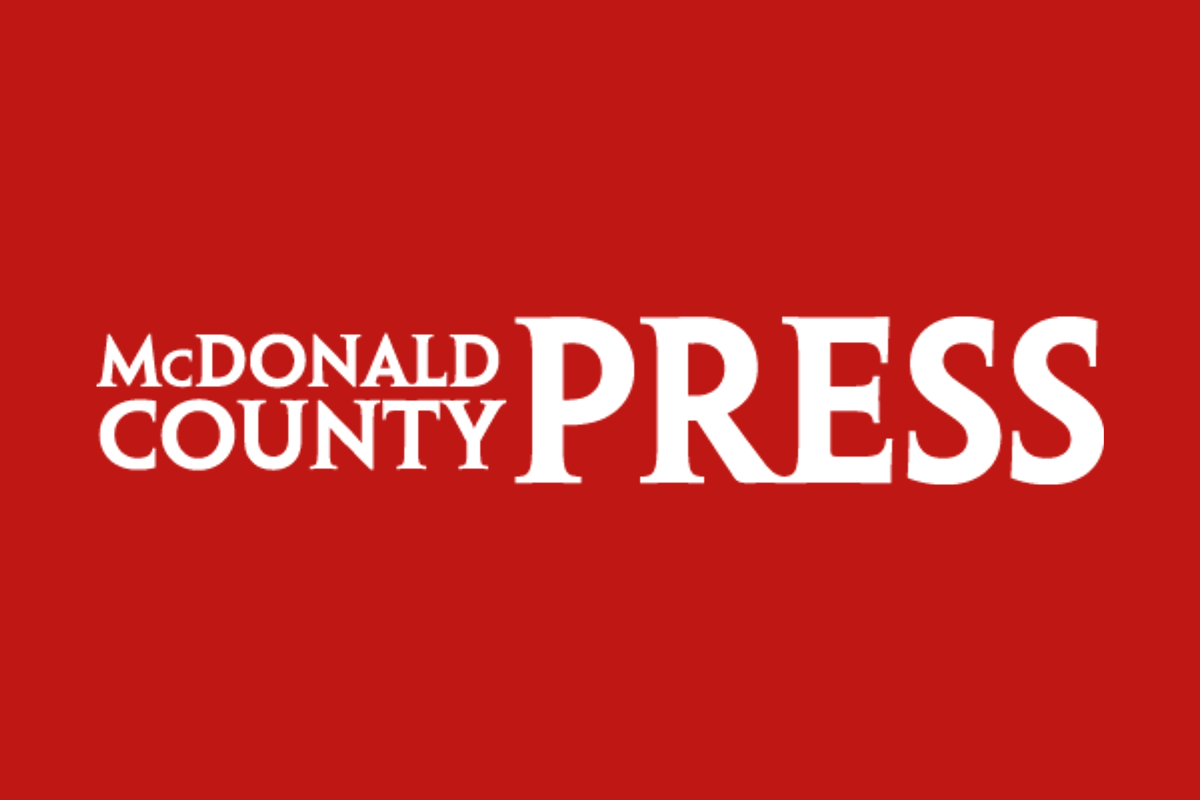Crowder College adult education, literacy program wins outstanding performance award – The McDonald County Press

Crowder College AEL Program Awarded for Excellence in Advancing Sustainable Development Goals
Executive Summary
The Crowder College Adult Education & Literacy (AEL) program has received the 2025 Outstanding Performance Award from the Missouri Department of Elementary and Secondary Education. This recognition highlights the program’s significant contributions to regional workforce development and its alignment with key United Nations Sustainable Development Goals (SDGs), particularly in providing quality education, promoting decent work, and reducing inequalities.
Contribution to SDG 4: Quality Education
The AEL program directly advances SDG 4 by ensuring inclusive and equitable quality education and promoting lifelong learning opportunities for all. Key achievements demonstrating this commitment include:
- A 72.4% student progression rate, indicating that nearly three-quarters of students achieve measurable academic gains.
- Serving 705 adult learners in the previous fiscal year and nearly 500 in the current year, expanding access to foundational learning.
- Providing free classes to prepare adults for the High School Equivalency (HSE) exam, strengthening literacy and numeracy skills in line with SDG Target 4.6.
- Facilitating transitions to higher education and employment, supporting SDG Target 4.3 on equal access to tertiary education.
Alignment with SDG 8: Decent Work and Economic Growth
By equipping adults with relevant vocational skills, the program is a key driver for SDG 8, which promotes sustained, inclusive, and sustainable economic growth and decent work for all. Programmatic elements include:
- Integrated Education & Training (IET) programs that combine academic instruction with job training.
- Supporting 92 individuals in earning industry-recognized credentials, directly enhancing their employability (SDG Target 4.4).
- Introducing new IET pathways in high-demand fields such as Microsoft Office and TEAS preparation for healthcare careers.
Promoting SDG 10: Reduced Inequalities
The program actively works to reduce inequalities within and among communities (SDG 10) by removing barriers to education and social inclusion. This is achieved through:
- Offering all programs free of charge to eligible adults across an expanded eight-county service area in Southwest Missouri.
- Providing specialized English Language Learner (ELL) classes to improve English proficiency for non-native speakers.
- Launching a new Citizenship Preparation Class to support social and civic integration.
- Increasing accessibility through expanded online learning options.
Fostering SDG 17: Partnerships for the Goals
In alignment with SDG 17, the AEL program strengthens its impact through strategic collaborations with public and private sector entities. Notable partnerships include:
- Collaboration with the Missouri Job Center’s YouthBuild program to support at-risk youth (SDG Target 8.6).
- Partnerships with local employers to deliver customized Workplace English classes, tailoring skills to meet local economic needs.
Program Services and Impact Metrics
The AEL program’s comprehensive services are designed to meet diverse learner needs and produce measurable outcomes.
- AEL Classes: Preparation for High School Equivalency (HSE), foundational academic skills, and support for college or employment transitions.
- ELL Classes: Instruction to improve English speaking, reading, and writing skills.
- Integrated Education & Training (IET): Programs pairing academic instruction with job training, leading to industry-recognized credentials.
Key Performance Indicators
- Geographic Reach: Barry, Barton, Cedar, Dade, Jasper, Lawrence, McDonald, and Newton counties.
- Learners Served (Previous FY): 705
- Industry Credentials Awarded: 92
- Student Progression Rate: 72.4%
SDGs Addressed in the Article
-
SDG 4: Quality Education
The article’s primary focus is on the Crowder College Adult Education & Literacy (AEL) program, which provides free educational services to adults. This directly aligns with SDG 4’s goal to “ensure inclusive and equitable quality education and promote lifelong learning opportunities for all.” The services mentioned, such as High School Equivalency (HSE) preparation, foundational academic skills, and English Language Learner (ELL) classes, are central to this goal.
-
SDG 8: Decent Work and Economic Growth
The program’s emphasis on workforce development connects its activities to SDG 8, which aims to “promote sustained, inclusive and sustainable economic growth, full and productive employment and decent work for all.” The article highlights Integrated Education & Training (IET) programs, industry-recognized credentials, and partnerships with employers, all of which are designed to improve employment outcomes for adult learners.
-
SDG 10: Reduced Inequalities
By providing free programs to eligible adults, including services for English language learners and citizenship preparation, the AEL program addresses SDG 10. This goal aims to “reduce inequality within and among countries.” The program promotes social and economic inclusion by removing financial barriers to education and providing pathways for marginalized groups to improve their skills and employment prospects.
Specific SDG Targets Identified
SDG 4: Quality Education
- Target 4.3: By 2030, ensure equal access for all women and men to affordable and quality technical, vocational and tertiary education, including university. The article states the program provides free services that “support transitions to college or employment,” directly contributing to this target.
- Target 4.4: By 2030, substantially increase the number of youth and adults who have relevant skills, including technical and vocational skills, for employment, decent jobs and entrepreneurship. The IET programs that “pair academic instruction with job training and lead to industry-recognized credentials” and new pathways in “Microsoft Office and TEAS preparation for healthcare careers” are explicit examples of efforts toward this target.
- Target 4.6: By 2030, ensure that all youth and a substantial proportion of adults, both men and women, achieve literacy and numeracy. The core AEL classes “to prepare for the High School Equivalency (HSE) exam, strengthen foundational academic skills,” and the ELL classes “to improve English speaking, reading, and writing skills” directly address adult literacy and numeracy.
SDG 8: Decent Work and Economic Growth
- Target 8.6: By 2020, substantially reduce the proportion of youth not in employment, education or training. While the target year has passed, the program’s ongoing “partnerships with the Missouri Job Center’s YouthBuild program” show a continued commitment to the spirit of this target by focusing on providing education and training to lead to employment.
SDG 10: Reduced Inequalities
- Target 10.2: By 2030, empower and promote the social, economic and political inclusion of all, irrespective of age, sex, disability, race, ethnicity, origin, religion or economic or other status. The provision of “free programs to eligible adults,” including the “new Citizenship Preparation Class” and “ELL Classes,” demonstrates a clear effort to empower and include diverse populations, reducing educational and economic inequalities.
Indicators for Measuring Progress
Implied Indicators
The article provides specific data points that can be used as indicators to measure progress towards the identified targets:
- Number of adult learners served: The article mentions the program “served 705 adult learners” last year and “nearly 500 learners in the current year.” This is a direct indicator of participation and reach, relevant to Targets 4.3 and 4.6.
- Number of industry-recognized credentials earned: The statement that the program “supported 92 individuals in earning industry-recognized credentials” is a quantifiable indicator for Target 4.4, measuring the acquisition of vocational skills for employment.
- Student progression rate: The “72.4% student progression rate” is a key performance indicator that measures learning outcomes and academic gains. This directly relates to Target 4.6 by showing that a substantial proportion of adult learners are achieving measurable improvements in their skills.
- Expansion of relevant training programs: The creation of “new IET pathways in Microsoft Office and TEAS preparation” and “customized Workplace English classes” serves as an indicator of the program’s responsiveness to labor market needs, aligning with Target 4.4.
Summary Table: SDGs, Targets, and Indicators
| SDGs | Targets | Indicators |
|---|---|---|
| SDG 4: Quality Education |
|
|
| SDG 8: Decent Work and Economic Growth |
|
|
| SDG 10: Reduced Inequalities |
|
|
Source: mdcp.nwaonline.com
What is Your Reaction?
 Like
0
Like
0
 Dislike
0
Dislike
0
 Love
0
Love
0
 Funny
0
Funny
0
 Angry
0
Angry
0
 Sad
0
Sad
0
 Wow
0
Wow
0














































































